A diabetes diagnosis can be frightening for yourself or a loved one. A lot needs to change quickly. You want to keep them as healthy as possible and feed them well, which means rethinking everything you buy and the meals you cook or order. However, trying to adjust your diet with all this new information can sometimes be perplexing.

One such area is Vegetables To Avoid In Diabetes. While eating more vegetables is always a good idea, which ones you eat matters a lot for people with diabetes. Some vegetables are bad choices and should be consumed in moderation. Here, we identify the worst vegetables for people with diabetes and explain why it is a good idea to eat or avoid them. Diabetics should avoid the following vegetables.
Why Avoid Some Vegetables For Diabetes?
People with diabetes should avoid vegetables with a high GI rating because the body absorbs blood sugar from those foods much faster than low-GI foods. These vegetables cause blood sugar spikes and can result in a sugar attack. You should also avoid carbohydrates and starchy vegetables, which can cause blood sugar levels to rise.
Top 10 Vegetables To Avoid In Diabetes
Do you want to know why you still have high blood sugar after not eating anything sweet? It could be because of these vegetables; let’s look at the ten vegetables to avoid diabetes.
1. Corn
Sweet corn contains starch but also a lot of sugar (mostly sucrose), which is bad for people with diabetes. Corn has a lot of starch. It is a carb that instantly raises a person’s blood glucose level.
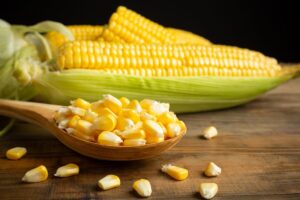
Diabetic patients can eat sweet corn moderately to compensate for the nutrients lost when potion size is reduced.
2. Green Peas
Green peas are high in protein and fibre and have a low GI rating of 22, but eating them can raise your blood glucose and worsen your diabetes. Peas can assist you in controlling your food cravings.
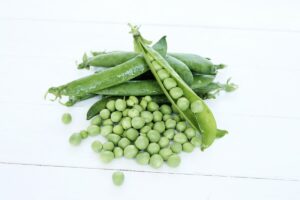
Peas’ high protein and fibre content aid in the digestion process. This, in turn, helps to stabilize blood sugar levels after eating.
3. Potatoes
Diabetic patients should avoid or consume potatoes in moderation. They contain a lot of starch, a form of carbohydrate. However, while potatoes are considered a complex “healthy” carb, your body digests them faster than other complex carbs.
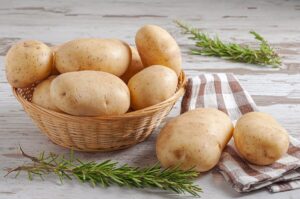
These broken-down carbohydrates flood your bloodstream with sugar. This causes your blood sugar to rise rapidly.
4. Sweet Potato
Sweet potatoes should be avoided because they have a high GI value and are a starch-rich vegetable. Sweet Potato is also high in carbohydrates. All types of sweet potatoes are healthy when consumed in moderation.
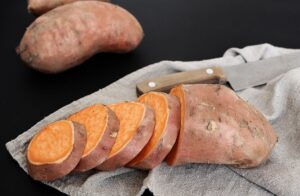
They’re high in antioxidants, vitamins, and minerals and can be safely included in a diabetes-friendly diet; boiled sweet potatoes can be in small amounts.
5. Yam
Yam’s high fibre content contributes to a glycemic index of 54 to 98, which is significantly lower than potatoes, which have a glycemic index that begins at 80.

Because it does not cause a sharp increase in insulin response, yam is better suited for weight watchers, diabetics, and those with heart disease. If you can’t live without the taste of boiled yam, eat it in moderation.
6. Butternut Squash
Butternut squash contains indigestible fibre and has a GI of 50, which is very close to the limit. If you have diabetes, you should avoid butternut to keep your blood sugar levels in check.
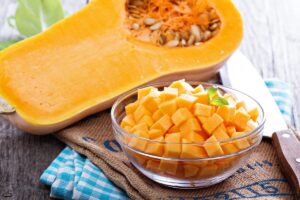
Butternut squash also has a low glycemic index, which means its carbohydrates are digested slowly. Additionally, it aids in stabilizing blood sugar levels.
7. Parsnip
Parsnip has a high GI value of 52-97, which significantly exceeds the line. Due to its low calorie, high protein, and fibre content, parsnip is best avoided by people with diabetes.
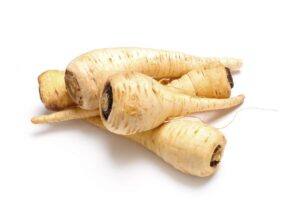
Consuming parsnip will almost certainly raise your blood sugar and aggravate your diabetes symptoms. Boiling parsnip, like other vegetables, can be included in your diet, but it is not recommended.
8. Broad Bean
The broad bean’s GI was raised from 53 for whole broad bean to 66 for broad bean kernels. This bean is high in calories and carbohydrates. Sugar accounts for the majority of their carbohydrate content.

A cup of broad bean contains 12 g of sugar. This amount of sugar can be problematic for people with diabetes. It is strongly advised to avoid brad bean if you have diabetes.
9. Beets
Beet GI begins at 61 and can reach 82, which is not recommended for diabetic patients. Beets are an excellent addition to a diabetes diet because they are low in calories and contain only 13g of carbohydrates per cooked cup.
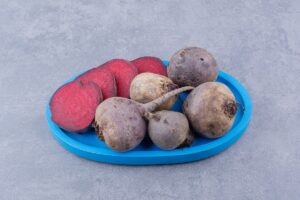
They are high in fibre and can help prevent blood sugar spikes. If you still want to eat boiled beets, do so in moderation.
10. Carrots
Carrots have a lower glycemic index (below 55) than the other vegetables on this list, but it is still a lot for a type 2 diabetic patient. Carrots, in moderation, can be a safe choice if you have diabetes and are watching your blood sugar levels.

They are also low in carbohydrates. So, if you’re on the ketogenic or keto diet, you can eat small amounts of carrots.
Disclaimer:
The following paragraph is a brief disclaimer to inform you that people suffer from two types of diabetes. Some vegetables are acceptable in moderation but should be avoided if possible. Many blogs on Google will tell you that these vegetables are better than they appear, which may not be true for you; therefore, consult a doctor before consuming any newer diet or vegetables, and try to avoid these ten vegetables if possible.
Conclusion
To summarise, if you want to improve your health and lower your risk of diabetes, avoid these vegetables. All of the vegetables on this list have a high glycemic index and are starch-rich, so they should be avoided. All of the root base Vegetables To Avoid In Diabetes are good choices. Visit us at fitternify.com to read more blogs like this.




